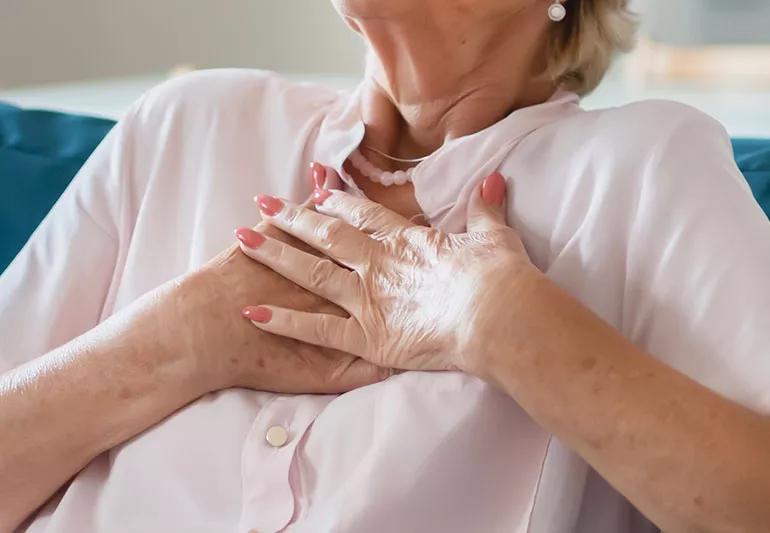Advertisement
Learn how you can reduce your risk

Contributor: Leslie Cho, MD
Advertisement
Cleveland Clinic is a non-profit academic medical center. Advertising on our site helps support our mission. We do not endorse non-Cleveland Clinic products or services. Policy
It’s responsible for 49% of deaths among all females. It kills an average of 400,000 women each year.
You may assume I’m talking about breast cancer. I’m not. I’m talking about heart disease, which kills more women in this country than all forms of cancer combined.
My goal is not to diminish breast cancer awareness, which has helped save and improve the lives of countless women. Instead, my goal is to remind you that heart disease is a major risk for women, too — and that you can do something about it.
There’s a reason family history comes up again and again in discussion. It’s a major tool in personalized healthcare and disease prevention.
When it comes to heart disease, gather as much information about your family as you can. Start with immediate family: parents, grandparents and siblings. Have any of them suffered heart attack or cardiovascular diseases? How old were they when they died, and what was the cause?
The more information you gather, the better you and your doctor can work to minimize your risk. Online tools such as the surgeon general’s My Family Health Portrait offer a great place to start.
Advertisement
Pain or a feeling of pressure in the chest is a common symptom of a heart attack for anyone, male or female. So is pain radiating down the shoulder and arm.
But sometimes these classic symptoms aren’t as pronounced in women as they are in men. So pay special attention to other symptoms, such as severe nausea and sweating, shortness of breath and unusual dizziness or fatigue. If you notice these symptoms — especially if your family history shows you’re at risk — seek treatment immediately. Unfortunately, many women don’t seek help until the damage has already been done to their hearts.
In addition to seeking help right away for acute symptoms, make and keep your regular well-check appointments. Be prepared to discuss your concerns and your family history with your doctor. Besides family history, other risk factors include smoking, diabetes, high blood pressure and high cholesterol.
If you are at risk — as so many women are — your doctor can tailor a plan to help you reduce that risk. That plan can include a healthy weight-loss goal if you have overweight or obesity, an exercise plan and personalized nutrition recommendations for a heart-healthy diet.
Above all else, don’t just assume that heart disease primarily affects men. It’s a major killer for women, but you can take steps to prevent it before it happens.
Learn more about our editorial process.
Advertisement

Factors like temperature, energy levels and sleep quality play a role in determining whether working out in the morning or evening is best for you

You may be more prone to hot flashes if you have anxiety, but hot flashes can also rev up anxiety

Obesity, age and preexisting heart conditions can all raise your risk of cardiovascular disease during pregnancy

Xylitol in processed food can increase risk of heart attack and stroke — but there’s no danger in xylitol in oral care products

If your provider has ruled out a serious cause, you can treat chest pain at home with antacids, inhalers or anti-inflammatory medications

Walking is a great goal, but how many steps are best for you depends on factors like your fitness level and age

Research shows a strong association between rheumatoid arthritis and heart issues

The scenarios vary based on how many pills you’ve missed and whether you take a combination pill or progestin-only pill

Focus on your body’s metabolic set point by eating healthy foods, making exercise a part of your routine and reducing stress

PFAS chemicals may make life easier — but they aren’t always so easy on the human body

While there’s little risk in trying this hair care treatment, there isn’t much science to back up the claims